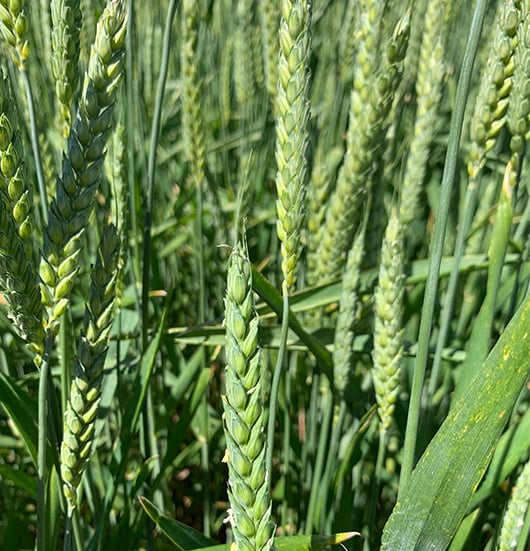Ways to manage your farm financial & business risk this season
The extent of the damage to crops has become increasingly visible over the past week and our thoughts are with all those affected.

Key messages:
- Review cash flow budgets in light of revised yield and quality
- Communicate with your farm advisors and bank manager
- Be open-minded to opportunities that increase your income stream
What’s worrying for those with crops still in a reasonable condition, is how harvest will play out in terms of yield and quality if it keeps raining and how this might impact the farm financial position.
As part of the Enhancing Community Networks project, Riverine Plains ran workshops to share community learnings from previous drought and climate challenges. While talking about drought now might seem counterintuitive, there are some financial and business management parallels worth considering.
A key aspect was the ability to keep making decisions (vs deferring/putting your head in the sand), while recognising that you can only make decisions with the best information you have at the time (see also our decision making blog). Being flexible also allowed farmers to respond to new opportunities – while the opportunities might be hard to see right now, being open-minded to them can help to capitalise when they do arise (i.e switching crops, scaling up/down the livestock enterprise, contracting etc).
Business
Having a 12-18 month cashflow forecast budget can help identify when cashflow issues might occur. Updating the cashflow budget now could help better understand the financial position and ensure existing financial commitments are met (i.e. loan or machinery repayments, tax, putting the 2023 crop in, purchasing fodder etc). It is also important to communicate early with your bank manager if your situation has changed.
Having money set aside, or a diversified source of income, was also identified as being a buffer against seasonal income reductions. Farm Management Deposits (FMD’s) can be drawn upon in difficult times; if you haven’t set one up yet, consider doing so if your circumstances allow (and if you meet the eligibility criteria).
Farmers also identified that having access to good support networks and experts (agronomists, accountants, advisors, financial counsellors, bank managers, stock agents etc) helped with planning and decision-making by sharing and being a sounding board for ideas. Keeping open and regular communication with other family members in the farm business was also key.
Having a long-term strategic plan is also important. While key decisions (succession, expansion, exiting farming) are best made when times are good, identifying the key (big) challenges facing your business helps decide on where future investments of time or money are best made.
Grains & livestock
It’s also important to look past the immediacy of harvest to next season. Stored soil moisture could be used to grow an opportunistic or irrigated crop this summer (if paddocks can be sown on time) or cover crops (sown with the intention of being brown/green manured) may be another option.
With grain at risk of downgrading, there may be opportunities for farmers to set-up containment feeding areas or expand the livestock operation to utilise excess feed grain stocks (keeping in mind toxicity issues with mouldy or damaged grain).
Some farmers prepare for drought by holding up to two years of livestock fodder reserves. While there is plenty of feed around at the moment, silage and hay making has been challenging this season and a lack of fodder reserves could be a problem if next year turns dry. As such, it might be worthwhile trying to secure (quality) alternative fodder now, as a buffer.
Look after yourself
Climate challenges were recognised by workshop participants as being especially stressful. If you are feeling overwhelmed, try to stay connected and keep communicating with friends and family (and if you are worried about someone, reach out and ask if they are ok). Also try to maintain healthy diet, sleep and exercise routines.
Grants & other supports
A number of government grants and low interest rate loans are available. NSW farmers can visit Disaster Assist while Victorian farmers can visit Agriculture Victoria.
The NSW Rural Financial Counselling service can also provide information on government assistance and grants in NSW, help those affected by cash flow issues and help submit the NSW DPI Primary Industries Natural Disaster Damage Survey. For more information, phone 1800 319 458.
For the full list of learnings from the Future Drought Fund visit the Enhancing Community networks project.
Author
NEWS
Catch up on our latest project and event news.
-
Livestock
-
People

